Altera® FPGA labs at LabsLand for higher education
With LabsLand, your students will have access to real Altera® FPGAs boards.
Teach Digital Systems
- No upfront investment required: use real remote FPGA laboratories of the LabsLand network.
- Pedagogically proven technology: find results in this award-winning article comparing how the LabsLand FPGA labs improves teaching.
- Ready to use contents, prepared by the Remote Hub Lab of the University of Washington and funded by Intel® Corporation. Find all the contents at the RHLab web.

Get licenses, or get the labs
- Most institutions purchase affordable licenses to use the laboratory equipment available in the LabsLand network
- However, you can also buy the equipment itself and host it in your institution, using the logo of your university and being a full LabsLand network member
Your institution space
- Your customized space: LabsLand provides you with a space where you will be able to manage and track your students.
- Integrations: integrate your laboratory with Canvas, Moodle, Google Classroom or other Learning Management Systems.
- User tracking: see how often students use the laboratory with the Dashboard.
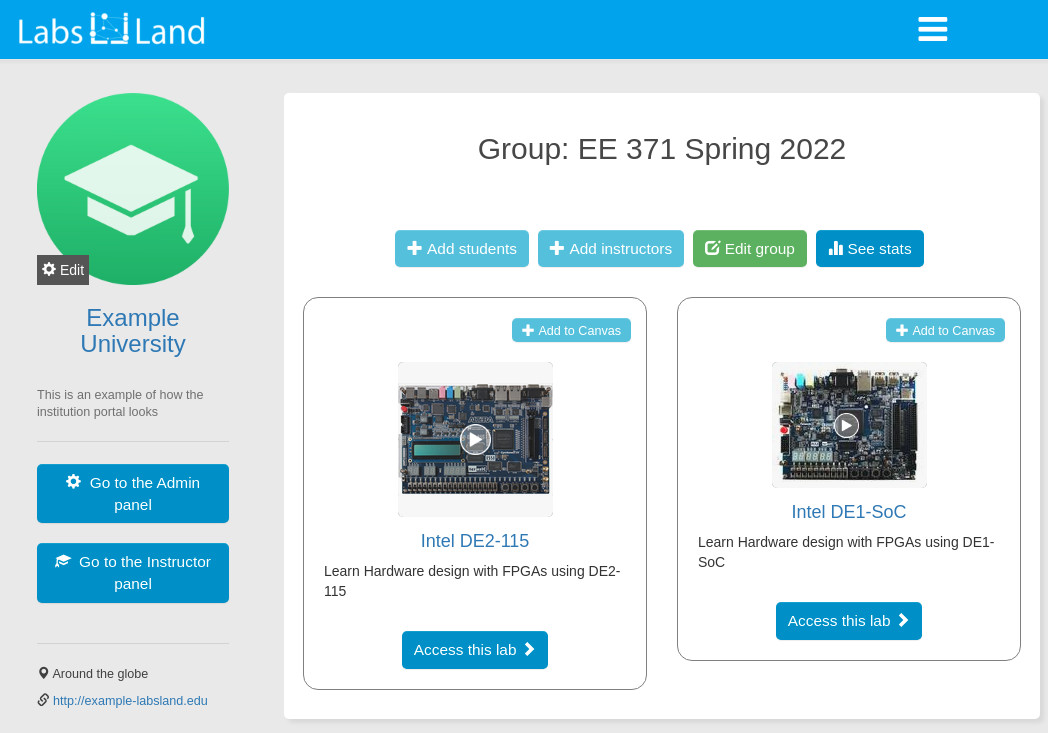
Testimonials
This is a REAL FPGA programming experience. Students write code in an integrated design environment. Then they download their programs to a real FPGA and see it operating in real time!

Remote labs bridge the times before and after COVID-19 in engineering education. A sustainable and cost efficient solution that connects hardware labs located in different places worldwide, which promotes a global sense of community
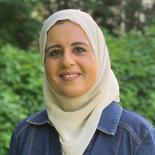
We use Labsland in conjunction with our in person labs. Before students needed to come to open hours for additional lab time. Now they have essentially unlimited access to our lab kits. Remote support is easy by simply sharing the Labsland screen via video conferencing. Labsland has allowed us to expand our support model with remote support and 24/7 access to the lab
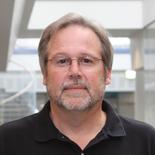
With the LabsLand FPGA remote-lab I could immediately switch to online-teaching for my digital design lab exercises. We use videoconferences to support students and when they share their screen we can look at the code, error messages and the behavior of the digital circuit.

LabsLand is a great way for students to do FPGA programming on real hardware from home, without the fear of breaking things.

I have used the LabsLand FPGA laboratory and it has been very comfortable: students would directly access from Moodle without registration, write their VHDL code, synthesize and immediately see how their code worked in a real laboratory through the Internet, in real time, and only using their web browser.

In LabsLand, I could use existing LabsLand labs but also co-create the FPGA laboratory (awarded), in a way that our students can use the laboratories physically located at UPNA, and also the same type of laboratory located in other universities. It is very comfortable to use: you just need the web browser and you access directly from Sakai.

I've used the LabsLand FPGA and Arduino labs in online courses and I'm very happy with the solution. You know they're going to work, no matter when you use it or with how many students. And you don't have the hassles of installing tools or depending on having the equipment next to each student.
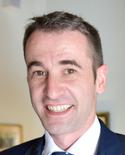
Thanks to the LabsLand laboratories we could bring our code from a simulation to a real environment. Some of our students are late evening students (studying mostly at night), who could only access the equipment in the class time, but now they can test their codes anytime anywhere.
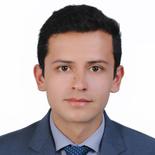
The use of the remote FPGA laboratory provided by LabsLand's infrastructure has allowed the development of digital circuit projects inside and outside the classroom, allowing students to work longer and improve their own projects, towards more learning meaningful, experiential, and student-centered.

I conduct a large laboratory course (VLSI Design Lab, 100 senior / postgrad / DD students ). We can get the students to prototype, verify interesting lab-tasks during common laboratory hours as well as offline hours too. The facility scales very well even with simultaneous usage by a hundred students.
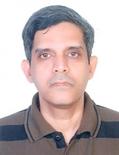
LabsLand remote labs on FPGA helped me in delivering courses through online mode without compromising on learning outcomes. I was surprised to see my students used LabsLand for 24 hours round the clock and impacted in solving challenging exam questions in finals. I strongly believe that the LabsLand labs are a fantastic online tool for students to gain enhanced learning experience in related engineering fields.
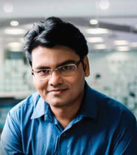
LabsLand is a fabulous and effective solution for the extraordinary situation during the COVID-19 pandemic. LabsLand provides REAL practical experience with a simple visual and interactive user interface. Our pleased experience with FPGA and Arduino robot labs encourages others to extend the experience to other fields at Tafila Technical University.
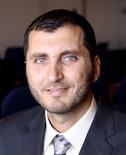
Start using it now!
Reach us to have your own space for a 1-month free demo for educational institutions, as well as to answer any questions:
Schedule a meeting Open support chat WhatsApp Send a messageFurther information
Download more information about this remote laboratory in different formats:
Detailed explanation One page summaryNews
ASEE ECE Division Best Paper Award
July, 2021
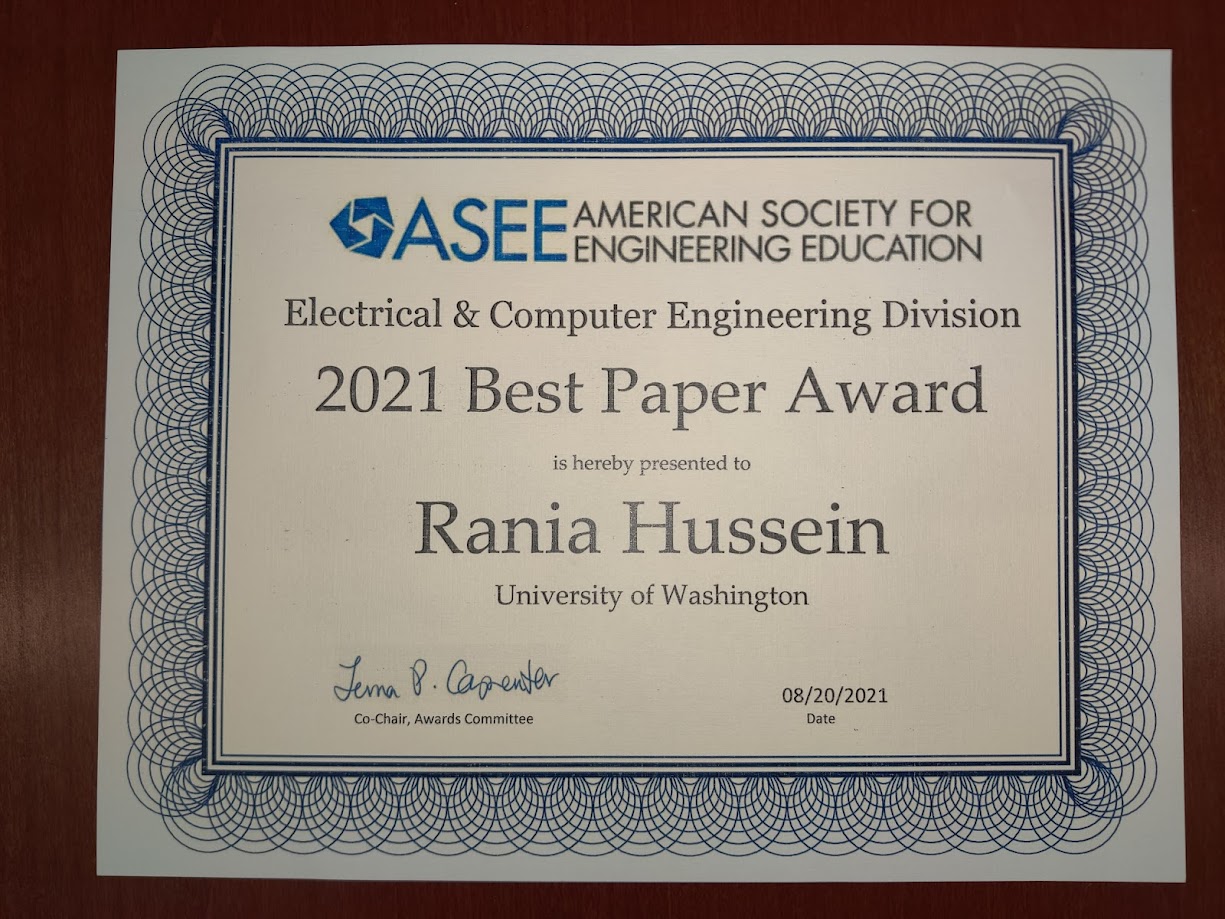
Prof. Rania Hussein and Prof. Denis Wilson obtained the ASEE ECE Division Best Paper Award for their article Remote Versus In-hand Hardware Laboratory in Digital Circuits Courses in which they explain the results of using the FPGA laboratories in class from a pedagogical perspective.
Intel-sponsored webinar at ASEE Annual Conference
July, 2021
Prof. Rania Hussein (University of Washington) and Dr. Pablo Orduna (LabsLand) run a workshop sponsored by Intel as part of the ASEE 2021 Annual Conference.
IEEE Spectrum (printed)
June, 2021
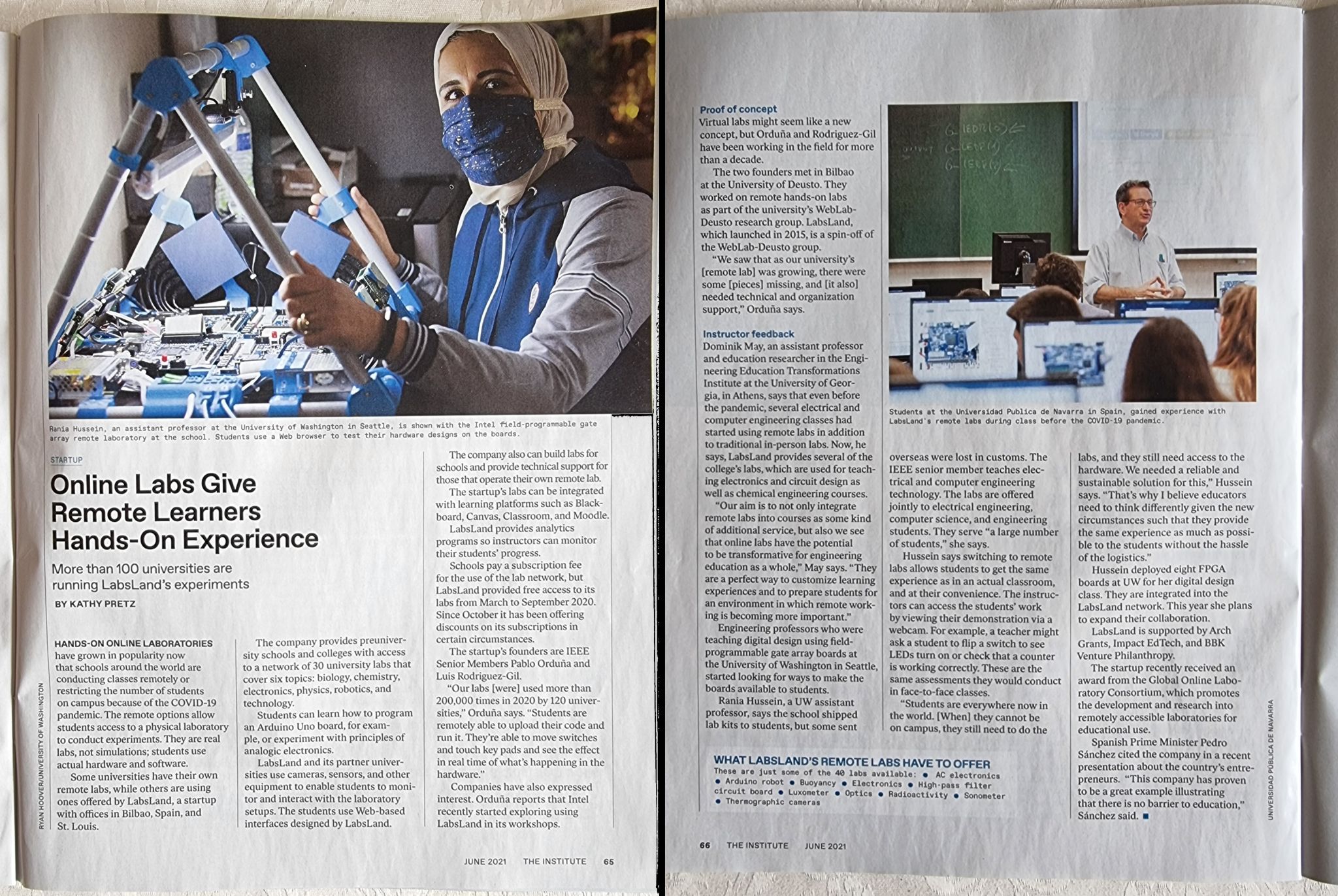
LabsLand was featured in this article of the IEEE flagship magazine, the IEEE Spectrum, in its printed edition (sent to all IEEE members worldwide)
Global Online Laboratory Consortium Award
March, 2021
Rania Hussein, Matthew Smith, Don Winsor, N. Ramakrishnan, Candido Aramburu, and Ana Lucia Beraldo (University of Washington, USA; University of Michigan, USA; Monash University, Malaysia; Public University of Navarre (UPNA), Spain; Federal University of São Paulo (UNIFESP), Brazil) obtained the Global Online Laboratory Award 2021 (GOLC Award) for their shared distributed remote laboratory system using LabsLand
Remote lab ensures continuity of education
March, 2021
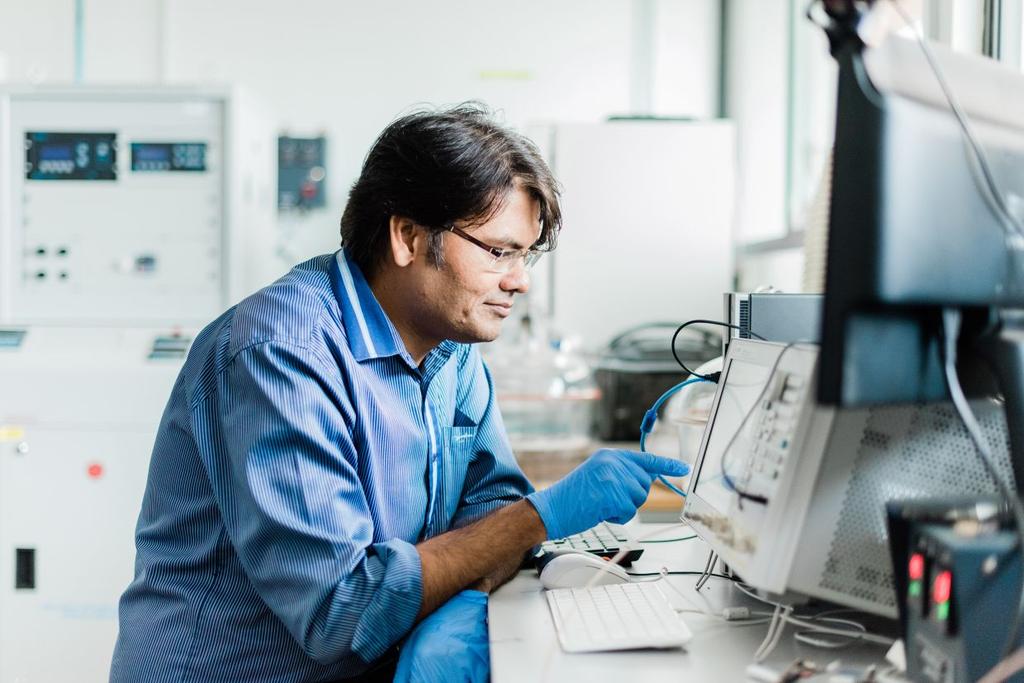
N. Ramakrishnan (Monash University Malaysia) and LabsLand were featured in this article of The Star, the main English-language newspaper in Malaysia.
Spanish Prime Minister explains LabsLand
February, 2021
Pedro Sánchez, Prime Minister of Spain, showed LabsLand as an example in the presentation of the Spain Entrepreneurial Nation strategy, explaining how LabsLand has proven to be a great example illustrating that there is no barrier to education.
IEEE Spectrum (digital)
October, 2020
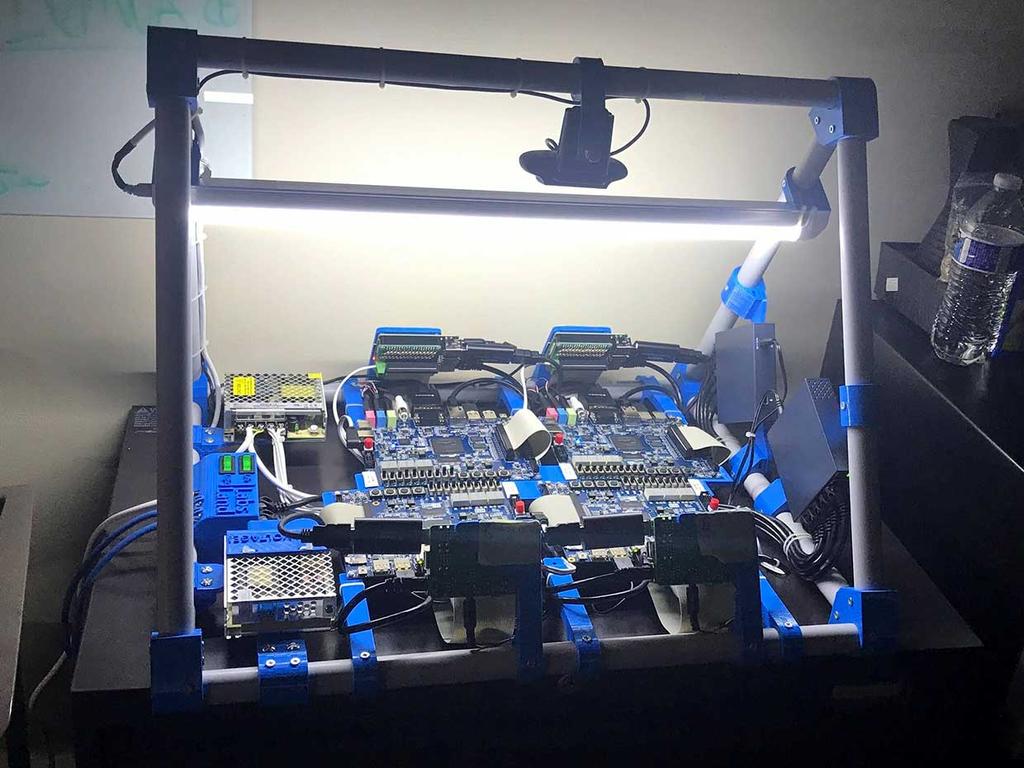
LabsLand was featured in The Institute section of the digital IEEE Spectrum website.
REV2020 Best Paper Award
March, 2020
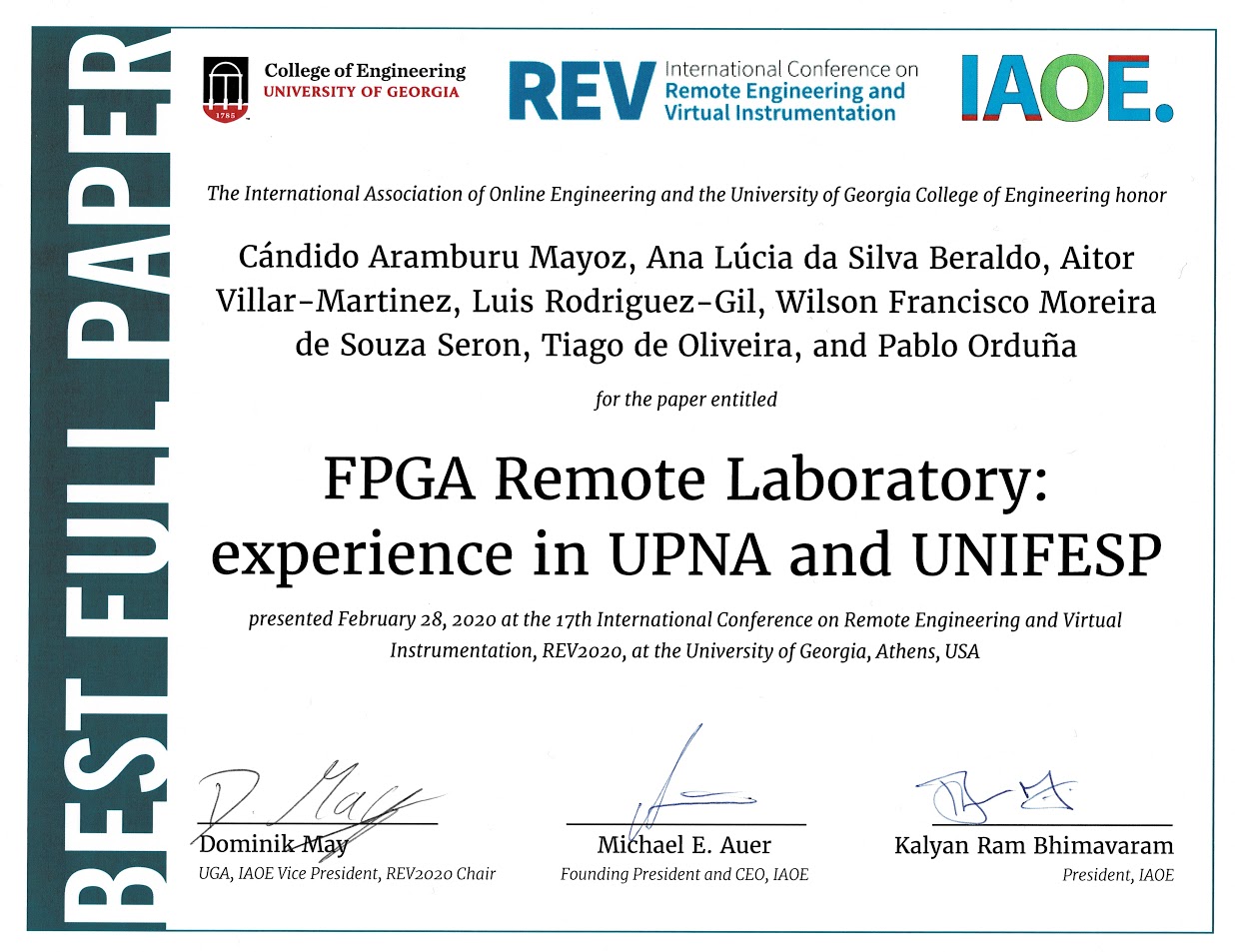
Candido Aramburu (UPNA), Ana Lúcia da Silva Beraldo (UNIFESP), and other members of LabsLand and both universities have obtained the Best Paper Award in the REV2020 conference, hosted at the University of Georgia.
 European Union
European Union United States
United States